Episodes

Tuesday Jul 14, 2020
Through the Gate of Lodore with COR Missionary Bob Milligan
Tuesday Jul 14, 2020
Tuesday Jul 14, 2020
“The canyon of Lodore is twenty and three-quarter miles in length,” wrote Major John Wesley Powell who was the first to descended the Green River through the canyon in June 1869. “It starts abruptly at what we have called the Gate of Lodore, with walls nearly two thousand feet high, and they are never lower than this until we reach Alcove Brook, about three miles above the foot. They are very irregular, standing in vertical or overhanging cliffs in places, terraced in others, or receding in steep slopes, and are broken by many side gulches and canyons.”
Powell and his men found the river from the Gate of Lodore very tough going with multiple long portages around rapids and the loss of one of four boats along with a great deal of supplies and scientific instruments in what he named “Disaster Falls.”
Of course those were the days before nylon, gor tex, polyester fleece, and good strong river rafts, the kind used by the recent COR Expeditions rafting trip down the Green River. Bob Milligan, a 2018 graduate of Wyoming Catholic College now on COR staff led the trip.
For more information about COR Expeditions visit the COR website.
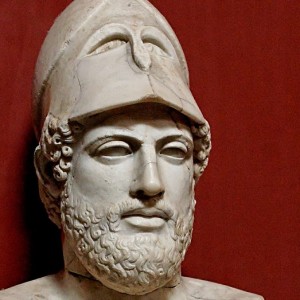
Tuesday Jul 07, 2020
Pericles and the Golden Age of Athens with Dr. Pavlos Papadopoulos
Tuesday Jul 07, 2020
Tuesday Jul 07, 2020
The Greeks finally defeated the Persian Empire in about 448 BC. When that war ended, the Athenians began to build an empire leading to a new war this one with their former allies. Central to the empire building and beginnings of the Peloponnesian War was the statesman Pericles.
During the first of our two two-week-long PEAK programs for high school students, Dr. Pavlos Papadopoulos taught a course about Pericles. His story is told by Thucydides in The Peloponnesian War and by Plutarch in Lives.
In the last of the speeches Pericles delivers in Thucydides’ account, Pericles tells an angry crowd, “And yet if you are angry with me, it is with one who, as I believe, is second to no man either in knowledge of the proper policy, or in the ability to expound it, and who is moreover not only a patriot but an honest one.” Was he really as good as all that? Was the age of Pericles truly the golden age of Athens?
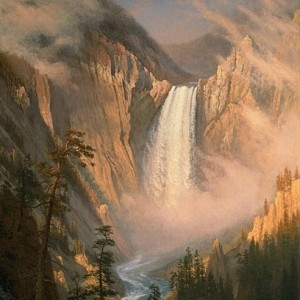
Tuesday Jun 30, 2020
Believing in Beauty by Dr. James Tonkowich
Tuesday Jun 30, 2020
Tuesday Jun 30, 2020
The well-laid plan was to fly to Maine for vacation, but it became clear that the travel restrictions there would make for a terrible vacation. So instead, Jim and Dottie Tonkowich drove north.
Their vacation trip of about 1,675 miles went from Lander to Cody, Yellowstone National Park, Three Rivers, Montana, Whitefish Lake, Montana, Glacier National Park, and back home via Butte, Montana, Yellowstone and the Tetons. If you’re thinking to yourself, “That must have been beautiful,” you’re on track with the topic of this podcast.
Beauty just may be the way to save our troubled world.
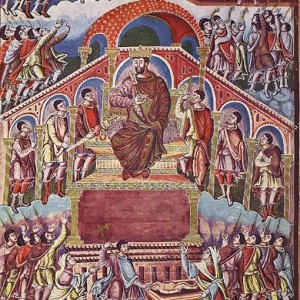
Tuesday Jun 23, 2020
The Medieval Experience of Beauty with Dr. Jason Baxter
Tuesday Jun 23, 2020
Tuesday Jun 23, 2020
“One will observe,” wrote St. Thomas Aquinas, “that all things are arranged according to their degrees of beauty and excellence, and that the nearer they are to God, the more beautiful and better they are.”
While we hear the word “beauty” a great deal today—beauty products, beauty salons, beautiful people, “that fish was a beauty”—it’s safe to say that few people are thinking about beauty in the very Medieval way of St. Thomas, that the experience of beauty today is different than it was for Thomas’s contemporaries.
The question of the Medieval experience of beauty is one that Dr. Jason Baxter has been exploring this summer in a class for our friends at The University of St. Thomas and will continue to explore during the fall semester while he is on sabbatical.
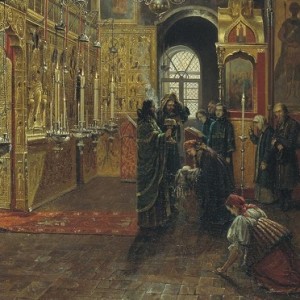
Tuesday Jun 16, 2020
The Liturgical Music of the Christian East with Prof. Christopher Hodkinson
Tuesday Jun 16, 2020
Tuesday Jun 16, 2020
In the past Wyoming Catholic College’s Byzantine chaplain, Fr. David Anderson has been a guest on The After Dinner Scholar so you know that our students are able to attend Byzantine Divine Liturgy regularly.
What you may not know is that while in the Western liturgical tradition, Mass can be celebrated without singing, in the Eastern rites, singing is mandatory.
Assisting Fr. David musically has been Prof. Christopher Hodkinson, Instructor of Music and Fine Arts who is also our Director of Music and our guest this week.
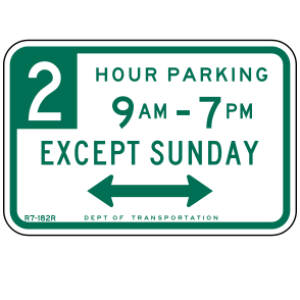
Tuesday Jun 09, 2020
“Better is One Day in Your Courts”: Rethinking Sunday with Dr. Kent Lasnosk
Tuesday Jun 09, 2020
Tuesday Jun 09, 2020
“Many people simply cannot believe that there can be a large, leisurely center to life where God can be pondered” wrote the late Dr. Eugene Peterson. “They doubt they can enter realms of spirit where wonder and adoration have a place to develop, and where play and delight have time to flourish. Is all this possible in our fast-paced lives?”
That 1994 article by Eugene Peterson was ironically entitled “The Good-for-Nothing Sabbath.” It had a profound influence on the way I thought about not only Sunday, but rest and leisure in general. It also served as the one of the first critiques I read of the modern American concept of time that sees each Sunday and holiday as nothing but “a day off” in the service of returning to work.
Dr. Kent Lasnoski here at Wyoming Catholic College has spent a good deal of time considering and writing about the Sabbath. And his concerns have only been amplified by the enforced fast from Sunday Mass and the sacraments due to COVID-19. We may have formed or enhanced some bad habits.
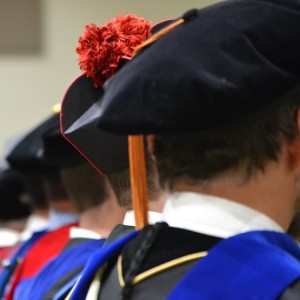
Tuesday Jun 02, 2020
Wyoming Catholic College's Class of 2020 by Dr. Glenn Arbery
Tuesday Jun 02, 2020
Tuesday Jun 02, 2020
With the gracious blessing of our governor and our county officials, Wyoming Catholic College became one of the few schools in America to hold a face-to-face graduation.
On Saturday, May 23 capped, gowned, and hooded, thirty-six Wyoming Catholic College seniors received their Batchelor of Arts in Liberal Arts at an outdoor, socially-distanced ceremony. The night before at dinner—also outdoors and socially-distanced—college president Dr. Glenn Arbery addressed the seniors before presenting them with their iconic Stetson cowboy hats. Here is what Dr. Arbery had to say about their experience at Wyoming Catholic College and about our hopes for their futures.
Commencement was livestreamed for family and friends. You can watch it here.

Tuesday May 26, 2020
Tuesday May 26, 2020
In early March, Wyoming Catholic College canceled all on-campus classes and like most—if not all—other colleges in America sent students home to resume classes at a distance.
Now it’s one thing to have a college that specializes in distance learning and there are schools today with no campus and no resident students. It’s quite another to retool nearly a semester of classes from face-to-face learning to distance. Our faculty put forth an heroic effort and the semester finished well.
In that effort they were led by our Dean Kyle Washut and asked Dean Washut to talk to us about the successes, difficulties, and things learned from our experiment in undergraduate distance education.
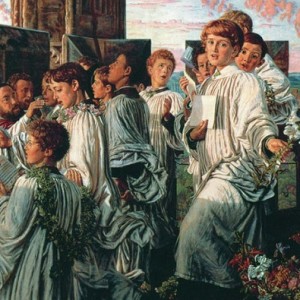
Tuesday May 19, 2020
Music, Worship, and Theology by Dr. Stanley Grove
Tuesday May 19, 2020
Tuesday May 19, 2020
“Right from the beginning liturgy and music have been closely related. Wherever people praise God, words alone do not suffice. Conversation with God transcends the boundaries of human speech; everywhere it has, according to its nature, called on music for help, on singing and on the voices of creation in the sound of the instruments. Not only man has a role in the praise of God. Worship is singing in unison with that which all things bespeak.”
That quotation is from Joseph Ratzinger’s essay, “The Image of the World and of Man in the Liturgy and Its Expression in Church Music,” an essay Wyoming Catholic College juniors recently read for the course “Music in the Western Tradition.”
On this podcast, their professor, Dr. Stanley Grove comments on that essay and the nature of music in worship.
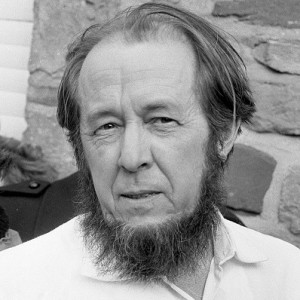
Tuesday May 12, 2020
Tuesday May 12, 2020
On June 8, 1978, Alexandre Solzhenitsyn went to Harvard University and delivered his now famous commencement address, “A World Split Apart.” It was, to say the least, not what people expected—or wanted.
By the time he delivered the Harvard commencement address, Solzhenitsyn had been living in the United States for some time, observing our politics and culture. In the address he offered a critique of our ideas of freedom and the good, of our sense of well-being, of our overall shortsightedness, and our lack of spirituality.
Wyoming Catholic College sophomores read Solzhenitsyn’s Harvard commencement address as part of Trivium 202: Political Rhetoric and the Common Good. In that course they not only study great examples of rhetoric, but learn to write and deliver their own speeches.
With those students at home across the land, Drs. Virginia Arbery and Pavlos Papadopoulos recorded this conversation about Solzhenitsyn.

